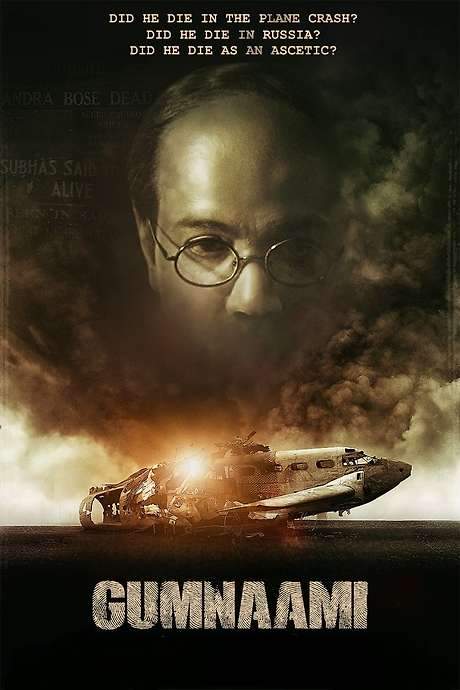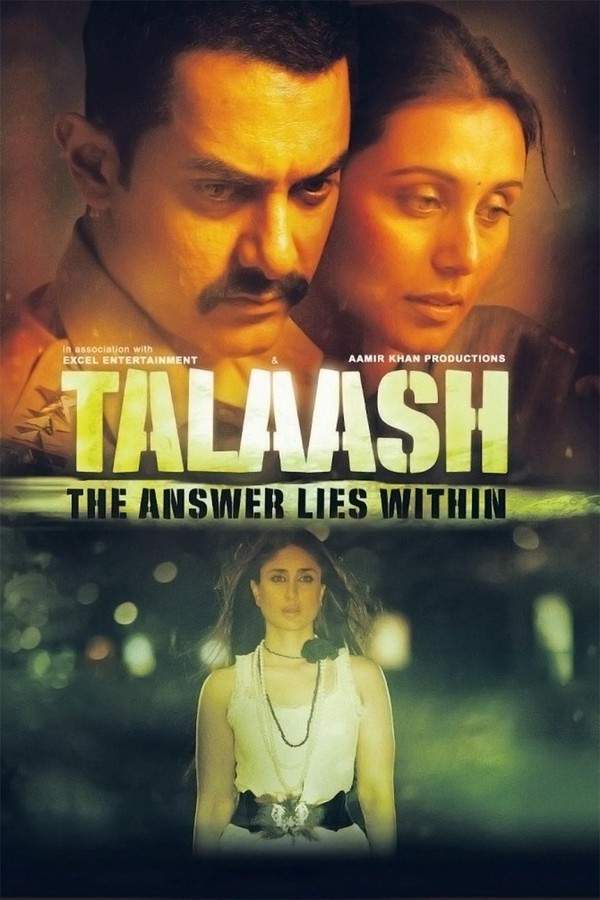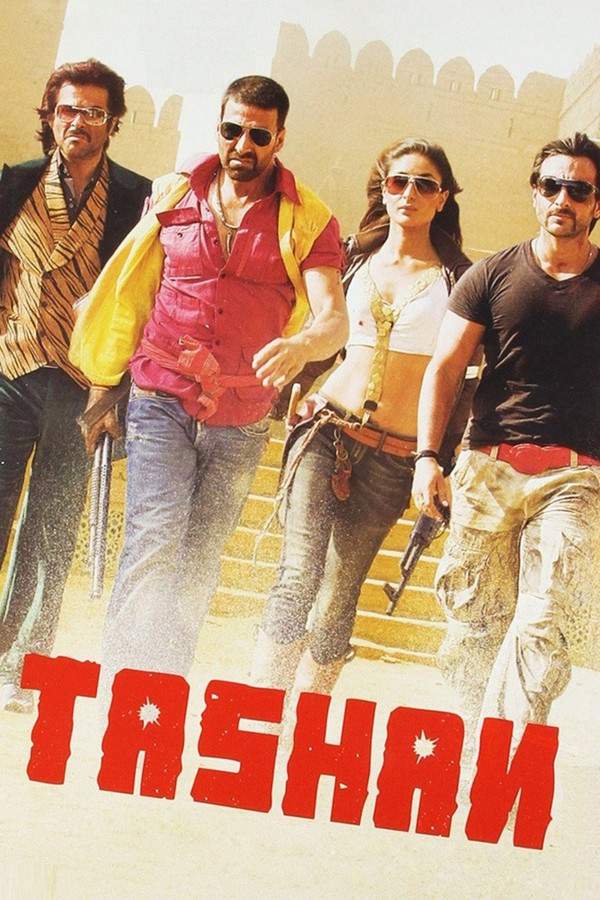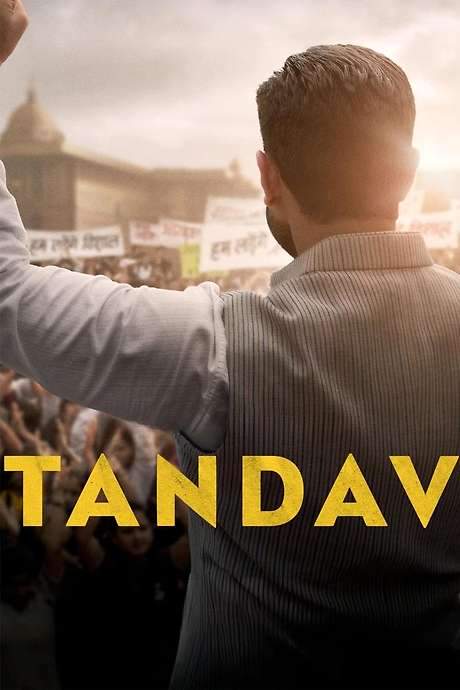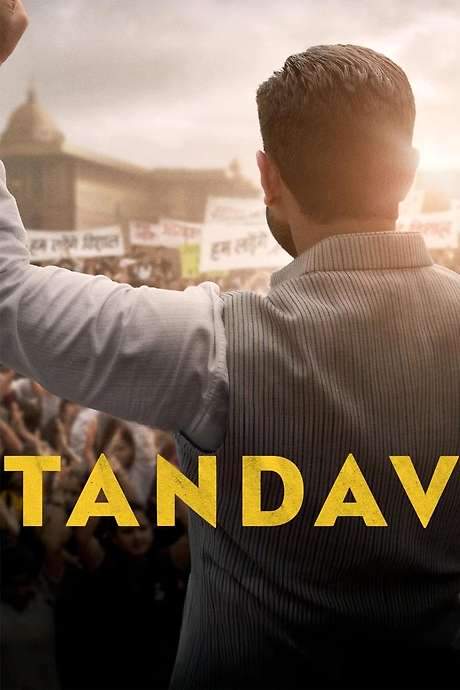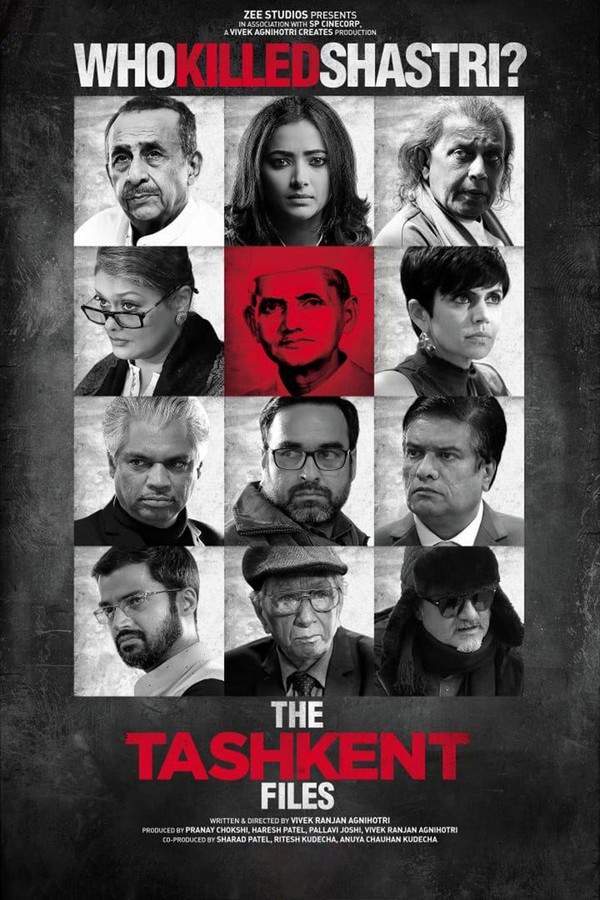
The Tashkent Files
Following the sudden and unexpected death of India’s second Prime Minister, a journalist embarks on an investigation to determine the circumstances surrounding his demise. Driven by a desire for the truth, he uncovers a complex web of political maneuvering and hidden agendas. His inquiries expose long-buried secrets and potentially destabilizing revelations, forcing him to confront powerful forces who want the truth to remain hidden.
Warning: spoilers below!
Haven’t seen The Tashkent Files yet? This summary contains major spoilers. Bookmark the page, watch the movie, and come back for the full breakdown. If you're ready, scroll on and relive the story!
The Tashkent Files (2019) – Full Plot Summary & Ending Explained
Read the complete plot breakdown of The Tashkent Files (2019), including all key story events, major twists, and the ending explained in detail. Discover what really happened—and what it all means.
Lal Bahadur Shastri, recognized as the second Prime Minister of India, was instrumental in guiding the nation through a pivotal triumph against Pakistan in 1965. Following this victorious period, he traveled to Tashkent, Uzbekistan, to formalize the Tashkent Agreement, a significant treaty signed on January 10, 1966, after an intense six-day negotiation. Tragically, Shastri passed away merely hours after signing this crucial document, leaving behind a shroud of mystery surrounding his untimely demise.
Fast forward to 1992, where the narrative takes a thrilling turn as a Russian spy affiliated with the KGB approaches the British Embassy in Latvia. He presents a briefcase packed with explosive documents revealing how the USSR systematically eliminated key state leaders globally. Enter Raagini Phule, played by Shweta Prasad, an ambitious investigative journalist under immense pressure to create a compelling “scoop” for her publication. She receives an anonymous call that leads her to a trove of documents related to Shastri’s life and the circumstances leading to his death. Armed with this shocking information, Raagini proposes to her supervisor the idea of investigating the whereabouts of Shastri’s postmortem report, which has mysteriously gone missing for over fifty years. The story gains traction, and soon, the media frenzy sweeps the nation.
At the political helm is P. K. R. Natarajan, portrayed by Naseeruddin Shah, serving as India’s home minister. On the opposing side, Shyam Sunder Tripathi, played by Mithun Chakraborty, leads the Janshakti party. In a strategic meeting, Natarajan recalls the political maneuvers that positioned Shastri as Prime Minister, indicating that after the demise of Jawaharlal Nehru, it was Kamaraj who played a significant role in elevating him to power, only to later pave the way for Indira Gandhi to ascend as PM post Shastri’s death.
Both Natarajan and Tripathi conspire to set up a committee to thoroughly investigate Shastri’s mysterious passing, with four nominees from each side. Raagini is invited to join this high-stakes committee alongside notable figures like Justice Kurian Abraham (Vishwa Mohan Badola), youth leader Vivendra Pratap Singh Rana (Prashantt Guptha), IAS officer G. K. S. Anantha Suresh (Prakash Belawadi), NGO activist Indira Joseph Roy (Mandira Bedi), historian Aiysha Ali Shah (Pallavi Joshi), and archival director Omkar Kashyap (Rajesh Sharma).
Shastri’s declining health is also a subject of deep concern, especially considering he had suffered two heart attacks before his trip to Tashkent. The abrupt change of his accommodation from a well-equipped hotel to a mere bungalow raises serious questions. While the hotel was equipped with an operating theater and oxygen, the bungalow fell short, lacking even basic medical provisions. Eight doctors tended to him, yet only six were willing to sign off on his medical report, casting further doubt on the circumstances surrounding his health at that critical moment. A deeply unsettling reality emerges: Shastri was only provided with an intramuscular injection when an intravenous option might have saved his life.
Raagini’s investigation takes a dramatic turn when she encounters a mysterious benefactor who supplies her with a Soviet version of Shastri’s medical report, which starkly contradicts the Indian government’s official stance. This alternative account raises grave suspicions about the true cause of Shastri’s demise. Omkar, a member of the committee, references a book by a former CIA operative indicating that both Shastri and Homi Bhabha, who were poised to advance India’s nuclear capabilities, were systematically eliminated by CIA machinations.
There’s an added emotional layer as Imran Qureshi (Ankur Rathee), Natarajan’s security chief and Raagini’s ex-boyfriend, attempts to intimidate her into abandoning the investigation. As investigations unfold, it becomes chillingly apparent that two witnesses to Shastri’s death—a doctor and his assistant—mysteriously died mere days after Shastri, under suspicious circumstances, leaving a trail of unanswered questions.
Amidst mounting evidence, the committee begins to contemplate a more sinister conspiracy—suggesting that Shastri’s legacy was deliberately erased because he was a transformative leader, and the Congress party sought to suppress a non-Nehru figure from overshadowing the nation’s history. The Green and White Revolutions, alongside significant advancements in India’s atomic program, bore the hallmark of Shastri’s vision; yet, these contributions have largely faded from public consciousness.
Raagini further delves into the details surrounding Shastri’s body, which turned black upon returning to India, signaling possible poisoning. The narrative takes a shocking turn when it is claimed that the cook who prepared Shastri’s final meal was a Muslim, implying a potentially sectarian motive behind the attack—this revelation deeply enrages Ayisha.
A pivotal encounter occurs when Raagini meets her benefactor, Bakshi, a former editor who reveals that the Congress party was complicit with the KGB in orchestrating Shastri’s removal. It is further disclosed that concrete evidence exists within the Tashkent files, which subsequently puts Raagini in grave danger as Bakshi dies in an accident shortly after their encounter.
In a bid to stifle Raagini’s efforts, Natarajan and Tripathi exploit their authority to expel her from the investigative committee, hiding behind the veil of the Official Secrets Act. However, Raagini is relentless, and with sheer determination, she persuades Tripathi to allow her a final opportunity to present her findings.
With compelling evidence, she illustrates that Shastri was indeed poisoned, evidenced by his cap—a personal belonging that bore stains of blood from injuries sustained posthumously. This raised alarming questions about the integrity of the medical reports submitted. Furthermore, it is suggested that an intricate conspiracy ensued thereafter, leading to India’s alignment under Soviet influence, culminating in the embedding of “Socialism” within the Indian constitution during a politically turbulent era.
In a scintillating climax, Raagini unveils the Tashkent files, once deemed inaccessible, which unravel the complex ties between Indira Gandhi and the KGB, signifying that the political fate of India was manipulated from the shadows. The narrative starkly insinuates that Indira Gandhi was indeed on the payroll of the KGB, implicating her in a larger scheme to secure her power while jeopardizing the sovereignty of the nation. Through this intricate tale of political intrigue, the film delves into the profound conspiracy that overshadowed one of India’s most pivotal figures.
Last Updated: November 25, 2024 at 19:24
Explore Movie Threads
Discover curated groups of movies connected by mood, themes, and story style. Browse collections built around emotion, atmosphere, and narrative focus to easily find films that match what you feel like watching right now.
Political Thrillers with Ambiguous Endings like The Tashkent Files
Investigation stories where revealing the truth leaves more unsettling questions than answers.For viewers who enjoyed the investigative tension and unsettling revelations of The Tashkent Files, this section features movies like it: complex political thrillers where the search for truth pits a determined individual against a systemic conspiracy, often ending with more questions than answers. These films deliver a heavy, thought-provoking experience centered on historical cover-ups and government corruption.
Narrative Summary
Stories in this thread typically follow a journalist, researcher, or investigator who doggedly pursues a historical mystery or political crime. They methodically gather evidence and confront witnesses, facing intimidation and danger from powerful institutions. The narrative arc is less about a tidy resolution and more about exposing the depth of the corruption, often concluding with the truth being revealed but systemic injustice remaining largely intact.
Why These Movies?
These films are grouped together because they share a specific combination of a tense, investigative tone, a complex plot involving real-world political machinations, a steady, methodical pacing, and a profoundly ambiguous ending that reinforces the theme of enduring, unaccountable power. The emotional journey is heavy and thought-provoking, not cathartic.
Suspenseful Movies about Historical Cover-ups like The Tashkent Files
Where one person's quest for a buried truth unveils a dangerous web of lies.If you liked the clandestine suspense and historical mystery of The Tashkent Files, you'll find similar movies here. This collection features tense, paranoid thrillers about uncovering cold war secrets, assassination plots, and government cover-ups, where the investigator's pursuit of the truth becomes a perilous journey against unseen adversaries.
Narrative Summary
The narrative pattern involves an outsider—a journalist, an academic, or a relative of a victim—becoming obsessed with a historical event whose official story doesn't add up. Their investigation is a slow unraveling of a tightly woven conspiracy, encountering reluctant witnesses, fabricated evidence, and direct threats. The story structure builds a pervasive sense of being watched and manipulated, creating a deeply paranoid viewing experience.
Why These Movies?
These movies are united by their specific vibe: a tense, suspenseful, and paranoid mood generated by a high-stakes investigation into a historical cover-up. They share a steady pacing that allows dread to build, high intensity from the life-or-death implications of the inquiry, and a focus on the psychological toll of uncovering secrets that powerful people want hidden.
Unlock the Full Story of The Tashkent Files
Don't stop at just watching — explore The Tashkent Files in full detail. From the complete plot summary and scene-by-scene timeline to character breakdowns, thematic analysis, and a deep dive into the ending — every page helps you truly understand what The Tashkent Files is all about. Plus, discover what's next after the movie.
The Tashkent Files Timeline
Track the full timeline of The Tashkent Files with every major event arranged chronologically. Perfect for decoding non-linear storytelling, flashbacks, or parallel narratives with a clear scene-by-scene breakdown.

Characters, Settings & Themes in The Tashkent Files
Discover the characters, locations, and core themes that shape The Tashkent Files. Get insights into symbolic elements, setting significance, and deeper narrative meaning — ideal for thematic analysis and movie breakdowns.

The Tashkent Files Spoiler-Free Summary
Get a quick, spoiler-free overview of The Tashkent Files that covers the main plot points and key details without revealing any major twists or spoilers. Perfect for those who want to know what to expect before diving in.

More About The Tashkent Files
Visit What's After the Movie to explore more about The Tashkent Files: box office results, cast and crew info, production details, post-credit scenes, and external links — all in one place for movie fans and researchers.

Similar Movies to The Tashkent Files
Discover movies like The Tashkent Files that share similar genres, themes, and storytelling elements. Whether you’re drawn to the atmosphere, character arcs, or plot structure, these curated recommendations will help you explore more films you’ll love.
Explore More About Movie The Tashkent Files
The Tashkent Files (2019) Scene-by-Scene Movie Timeline
The Tashkent Files (2019) Movie Characters, Themes & Settings
The Tashkent Files (2019) Spoiler-Free Summary & Key Flow
Movies Like The Tashkent Files – Similar Titles You’ll Enjoy
Talaash (2012) Film Overview & Timeline
Tashan (2008) Complete Plot Breakdown
Wazir (2016) Story Summary & Characters
Scorpion (2018) Plot Summary & Ending Explained
Kaafir (1000) Plot Summary & Ending Explained
New Delhi Times (1986) Spoiler-Packed Plot Recap
Ashes Over Sun (2020) Spoiler-Packed Plot Recap
Tandav (1000) Complete Plot Breakdown
The Kashmir Files (2022) Complete Plot Breakdown
London Files (1000) Ending Explained & Film Insights
Ashkal: The Tunisian Investigation (2022) Spoiler-Packed Plot Recap
The Assassination (1972) Spoiler-Packed Plot Recap
Tandav (1000) Full Summary & Key Details
The Truth (1998) Movie Recap & Themes
Neeyat (2023) Film Overview & Timeline











